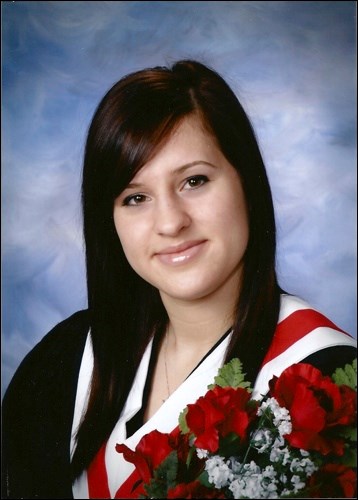Making the correct choices for the future can lead to a better paying job, but the direction one takes in post-secondary education can also lead to a little bit of cash for school.
The Maidstone Health Care Auxiliary Bursary is offered every fall. Students who graduated from Maidstone High School and who are in their second year of study in the health care field are invited to submit an application before the end of August.
This year the committee decided to award the $500 bursary to Jennifer Brausse. She attended her first year of university in the education program in Regina, but soon discovered she didn't want to become a teacher.
"During my practicum I spent my time with the school speech-language pathologist and a student from my assigned class. This is where my desire to become a speech-language pathologist grew," said Brausse in a letter to the committee.
She is currently enrolled in Minot State University's undergraduate degree program in communication disorders. The program is a pre-requisite for a speech-language pathology graduate program. She has already completed several courses including Introduction to Communication Disorders, Speech and Hearing Science and Introduction to Language Development and has earned recognition on the president's list.
Brausse finds the course content interesting and enjoys her studies.
"If I had to pick a favourite class, it would be audiology. Audiology is the study of the prevention, evaluation, rehabilitation/habilitation of hearing impairments and their associated disorders. At the end of the unit we are currently working on, we will get to learn to use an audiometer (an audiometer measures hearing), so that will be pretty cool!
"I am also taking articulation and phonological disorders, neurology, child development, and introduction to exceptional children," she said.
This is her first bursary and she will put the money towards the purchase of textbooks.
"I am so honoured the Maidstone Health Care Auxiliary chose me to accept this award," she said. She plans to finish her undergraduate degree followed by a two-year graduate program after which she will be considered a specialist in the study, assessment and treatment of speech-language disorders.
"Once I have completed this program, I hope to become employed in a health region where I will work with populations ranging from paediatrics to geriatrics or possibly become a member of a cleft lip and palate team," wrote Brausse.




